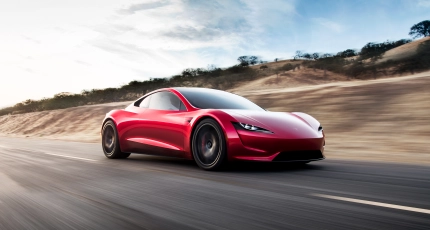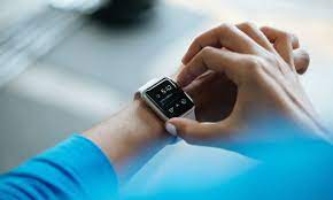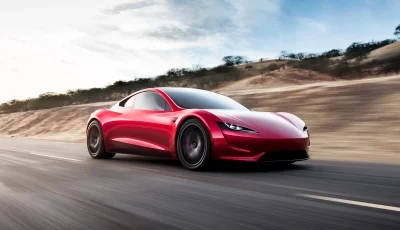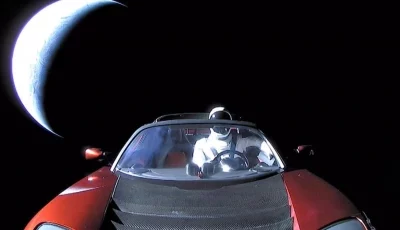Press Release
Borussia Dortmund drew with Bayern Munich by 2-2 in the Bundesliga

On Saturday, in the Bundesliga, Borussia Dortmund drew with Bayern Munich by 2-2. It was a dramatic match, in which, in the last, Dortmund’s players scored two goals, snatched the victory from Bayern, and ended with a 2-2 draw.
The match occurred at the Signal Iduna Park in Dortmund, where more than 81k crowd came to see the game.
In the 2-2 draw, Bayern’s Leon Goretzka scored the first goal for his team in the 33rd minute, and Leroy Sané scored the second in the 53rd minute. The game was in Bayern’s hand until Dortmund’s scored two late goals.
Dortmund’s young player Youssoufa Moukoko scored the first goal in the 74th minute and became the youngest scorer in history at 17. Anthony Modeste, who was under massive criticism after replacing the ailing Sébastien Haller, scored the second goal in the 90th minute, which was the match-changing.
After this match, Dortmund stands fourth in the league’s point table with 16 points, while Bayern stands at 3rd with 16 points.
In the first half, Dortmund’s players failed to score and lead the display, but in the second half, they changed the losing game into a draw. In the 90th minute, Bayern’s Kingsley Coman was sent off and ended the game with ten men.
In the 83rd minute, Dortmund’s Modeste made a try, but the goalkeeper managed to claw away, and in the next chance, Modeste finally scored and saved his team from losing the game.
Press Release
Russian processor manufacturers are prohibited from using ARM because of UK sanctions.

On Wednesday, the UK government expanded its list of sanctioned Russian organisations by 63. The two most significant chip manufacturers in Russia, Baikal Electronics and MCST (Moscow Center of SPARC Technologies), are among them.
Since the licensee, Arm Ltd., is situated in Cambridge, England, and must abide by the penalties, the two sanctioned firms will now be denied access to the ARM architecture.
contacting inactive entities
The UK government provided the following justification for the restrictive measures put in place against Baikal and MCST:
The clause’s goal is to persuade Russia to stop acting in a way that threatens Ukraine’s territorial integrity, sovereignty, or independence or that destabilises Ukraine.
The two companies are important to Russia’s ambitions to achieve technical independence since they are anticipated to step up and fill the gaps left by the absence of processors built by Western chip manufacturers like Intel and AMD.
The two currently available most cutting-edge processors are:
Eight ARM Cortex A57 cores running at 1.5 GHz and an ARM Mali-T628 GPU running at 750 MHz make up the 35 Watt Baikal BE-M1000 (28nm) processor.
MCST Elbrus-16S (28nm), a 16-core processor clocked at 2.0 GHz, is capable of 1.5 TFLOP calculations, which is a tenth of what an Xbox Series X can do. Baikal BE-S1000 (16nm), a 120 Watt processor featuring 48 ARM cores clocked at 2.0 GHz, MCST Elbrus-8C (28nm), a 70 Watt processor featuring eight cores clocked at 1.3 GHz,
Russian businesses and organisations that evaluated these chips in demanding applications claim that they fall short of industry standards and are even unacceptably priced.
Although the performance of these processors and the far poorer mid-tier and low-tier chips with the Baikal and MCST stickers is not very spectacular, they could keep some crucial components of the Russian IT sector operating amid shortages.
In reality, MCST recently bragged that it was “rushing to the rescue” of vital Russian enterprises and organisations, successfully filling the void left in the domestic market.
sanctions’ effects
Given that Russia has previously demonstrated its willingness to relax licencing requirements in order to mitigate the consequences of Western-imposed limitations, it is simple to discount the application and impact of the UK’s sanctions.
It is crucial to keep in mind that the Baikal and MCST processors are produced in foreign foundries, such as those owned by Samsung and TSMC, and that neither of them would violate Arm’s licencing policies or international law to serve Russian objectives.
The only option is to bring the production home and break the law as Baikal, which has a legitimate licence to produce at 16nm, only has a design licence for its next products.
The fact that chip fabrication in Russia can only now be done at the 90nm node level presents yet another significant issue. That was the same technology NVIDIA employed in 2006 for its GeForce 7000-series GPUs.
To combat this in April 2022, the Russian government has already approved an investment of 3.19 trillion rubles (38.2 billion USD), although increasing domestic production will take many years. In the best-case scenarios, 28nm circuits will be able to be produced by Russian foundries by 2030.
Press Release
Zuckerberg says Facebook is dealing with Spotify on a songs assimilation job codenamed Task Boombox (Salvador Rodriguez/CNBC).

Zuckerberg says Facebook is working with Spotify on a music integration project codenamed Project Boombox (Salvador Rodriguez/CNBC)
Salvador Rodriguez / CNBC:
Zuckerberg says Facebook is working with Spotify on a music integration project codenamed Project Boombox — – Facebook CEO Mark Zuckerberg on Monday announced that the company is building audio features where users can engage in real-time conversations with others.
Press Release
THE UNITIONS OF WEARABLE DEVICE SHIPMENTS FOR 2020 GREW 28.4% TO 444.7M UNITS, TEAHING FROM APPLE, WHICH GREW 27.2% IN Q4 AND HAS 36.2% MARKETSHARE, FOLLOWED BY XIAOMI AT *9% (IDC).

Wearable device shipments for 2020 grew 28.4% to 444.7M units globally, led by Apple which grew 27.2% in Q4 and has 36.2% marketshare, followed by Xiaomi at ~9% — Worldwide shipments of wearable devices reached 153.5 million in the fourth quarter of 2020 (4Q20), a year-over-year increase …
-

 Apps1 year ago
Apps1 year agoWhy is Everyone Talking About Hindi Keyboards?
-

 Social Media1 year ago
Social Media1 year agoWho is Rouba Saadeh?
-

 Apps1 year ago
Apps1 year agoThings you need to know about Marathi keyboard today
-

 Apps1 year ago
Apps1 year agoStuck with Your default Bangla keyboard? Isn’t it time for a change?
-

 Games1 year ago
Games1 year agoTop 7 Popular Puzzle and Card Games for Relaxing Your Brain on Mobile, Featuring Solitaire
-

 Social Media1 year ago
Social Media1 year agoMati Marroni Instagram Wiki (Model’s Age, Net Worth, Body Measurements, Marriage)
-

 Entertainment1 year ago
Entertainment1 year ago12 Online Streaming Sites that Serve as Best Alternatives to CouchTuner
-

 Entertainment1 year ago
Entertainment1 year agoMovierulz Website: Movierulzz 2021 Latest Movies on Movierulz.com






